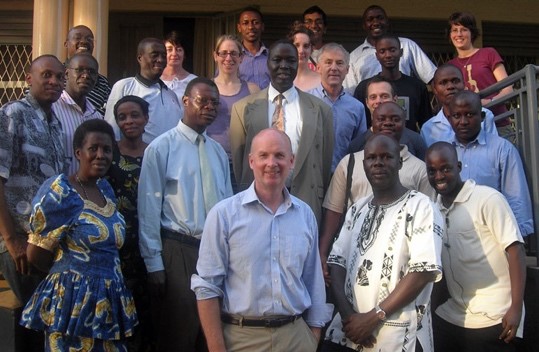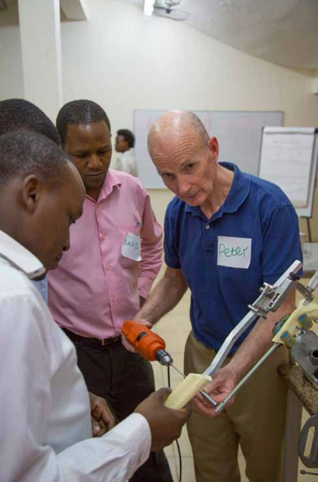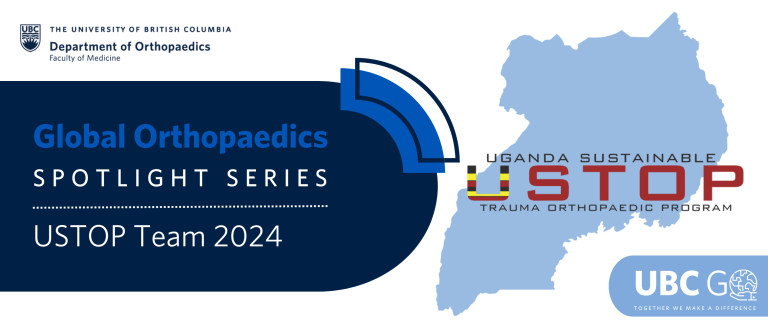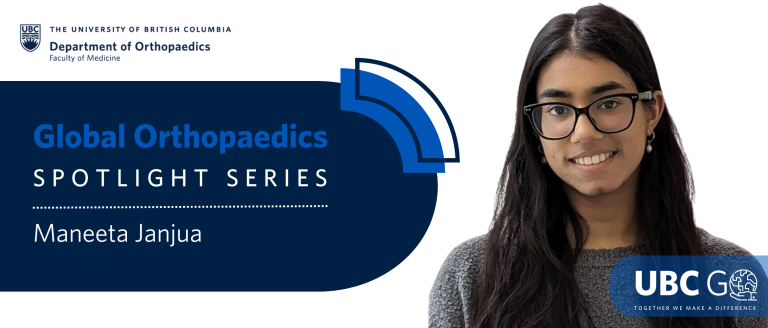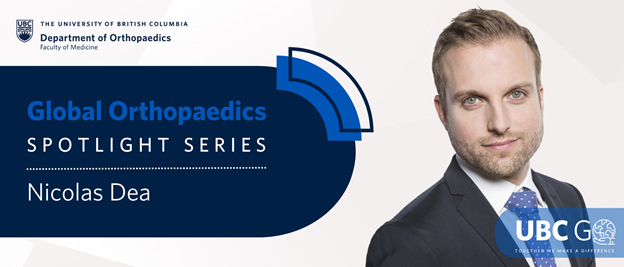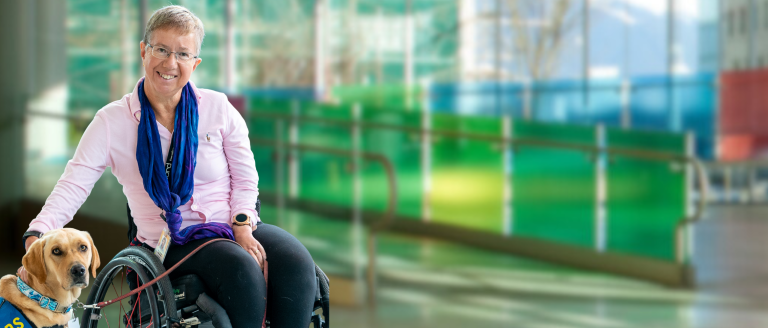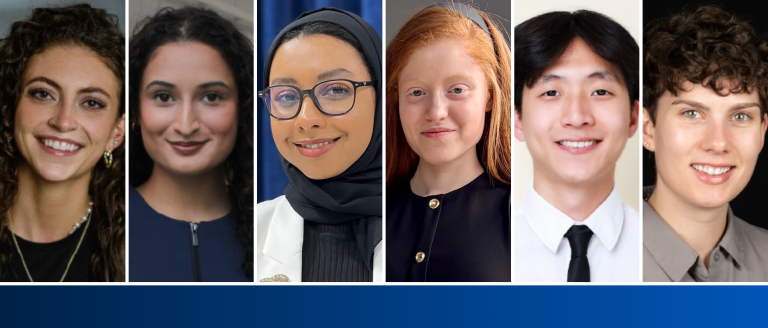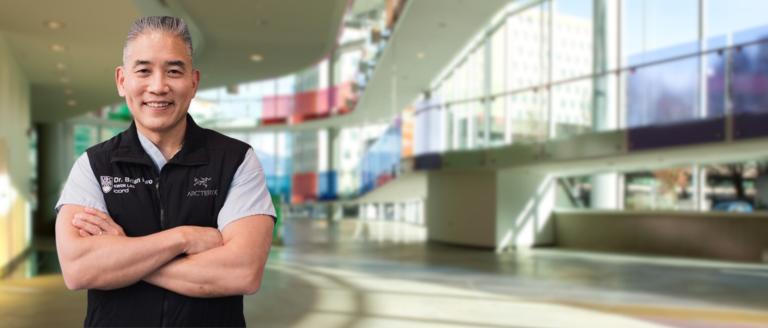By Tarini Boparai & Maneeta Janjua
Our UBC Global Orthopaedics (UBC GO) Spotlight series features in-depth conversations with a UBC Department of Orthopaedics member about their involvement in global orthopaedic initiatives. In this next spotlight, we learn about UBC Associate Professor Emeritus and orthopaedic surgeon, Dr. Peter O’Brien.
Dr. Peter O’Brien, a dedicated orthopaedic surgeon committed to using his skills and knowledge of medicine to aid the underserved, has transformed orthopaedic trauma care within Uganda. Collaborating with colleagues, Dr. Piotr Blachut and Dr. Trevor Stone, he pioneered the Uganda Sustainable Trauma Orthopaedic Program (USTOP), a groundbreaking initiative designed to usher in enduring advancements in orthopaedic trauma surgery and patient care. Driven by their passion for comprehensive teaching and rigorous research, USTOP stands as a testament to the power of collaboration and dedication.
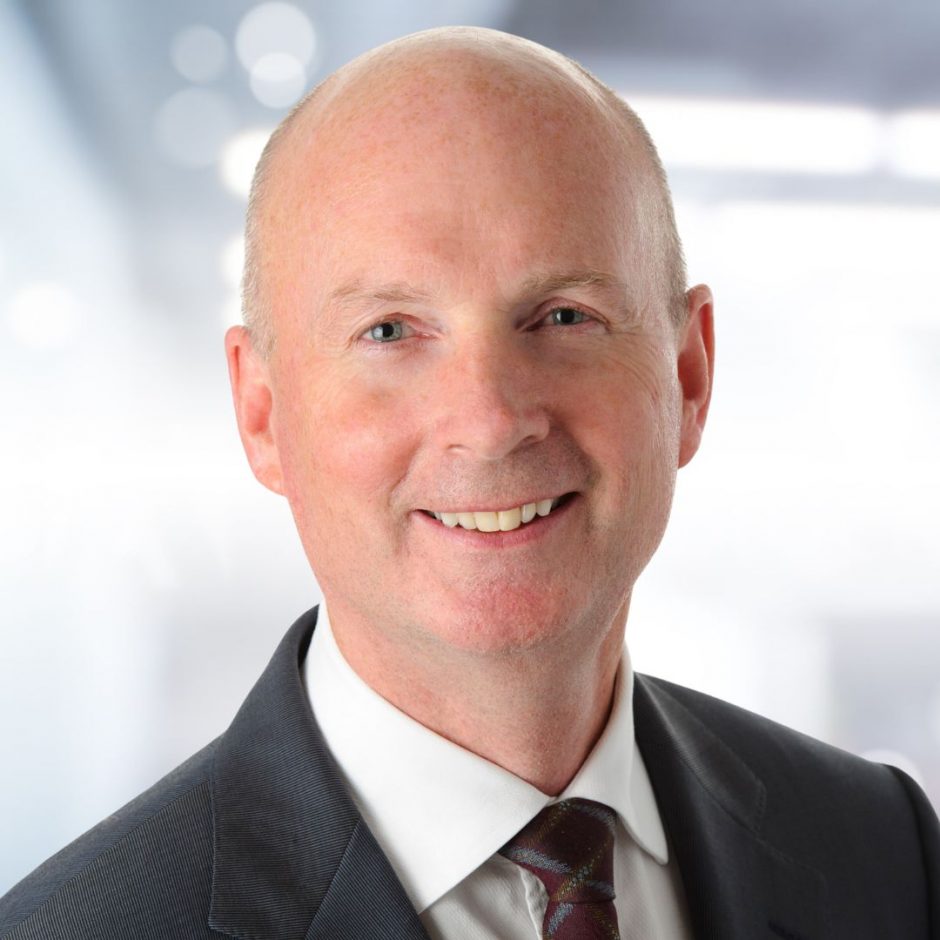
PETER O’BRIEN
Project/Initiative:
Uganda Sustainable Trauma Orthopaedic Program (USTOP)
What inspired your interest in global health/surgery/orthopaedics?
Healthcare professionals in countries like Canada are acutely aware of their privilege and the stark disparities that exist globally. This awareness fueled a deep desire to give back and provide assistance to those who are less fortunate. This is something I’d been thinking about throughout my life.
What did you do?
In 2006, the University of British Columbia and the Makere University, which was the only university in Uganda that had a medical school at that time, signed a memorandum of understanding that they would work on projects of mutual interest. The Ugandans then sent a delegation here to Vancouver to sign the agreement. One of the delegates was an orthopaedic surgeon named Edward Naddumba. Dr. Naddumba informed me that there had been a dramatic shift in Uganda wherein people moved from a rural lifestyle to an urban one but with poor infrastructure – roads, cars, trucks, pedestrians, motorcycles and all this great massive humanity sharing poor infrastructure. Accordingly, motor vehicle related MSK injuries increased at an overwhelming rate which is what the Ugandans needed help managing.
UBC Orthopaedics already had an established relationship with Uganda Orthopaedics through Dr. Pirani’s clubfoot project there. In the spring of 2007, Dr. Piotr Blachut, Dr. Trevor Stone and I went to Uganda to learn about orthopaedic trauma care in that country. At our Ugandan colleagues invitation and with Dr. Pirani’s encouragement, we planned to develop a project with them that would result in a sustainable improvement in orthopaedic trauma care in that country. We decided that we would get a health care team together and travel to Uganda on a regular basis. The plan was to focus on teaching, research and to a lesser degree participate in clinical care with them. We called the project the Uganda Sustainable Trauma Orthopaedic Program (USTOP).
Where did you find the funding?
The team worked on a variety of fundraising projects and all team members participated on a volunteer basis. Over the years, orthopaedic surgeons from McMaster University joined the USTOP team. USTOP focused its activity at the main referral hospital in the country (Malago Hospital), where the orthopaedic training program is centered. The USTOP team consists of nurses, physiotherapists, sterile supply technicians, anesthesiologists, surgeons and others involved in the surgical care team. Administrator, Nathan O’Hara, played a special role in helping USTOP take off. Dr. O’Hara was an unbelievable resource for us in terms of his energy and enthusiasm.
One thing we’re probing and looking into is sustainability. Do you think your projects were able to achieve sustainability?
The project concentrated mostly on education and research because our team knew from the start that simply helping with clinical care was not going to make a sustainable difference for them. Our team has gone many times keeping all aspects of orthopaedic care in mind rather than focusing on the operating room. Most of our focus was on teaching residents, but we also trained nurses in the operating room, nurses in the recovery room, physiotherapists, engineers, and sterile supply people. Education is provided through rounds, evening seminars, formal bio skills workshops where we presented lectures, had implants and instruments and models of bones. We were also able to partner with them in a number of research projects which helped with their progress in terms of clinical research. We have seen the sustainability of our project come to fruition. We still work together, but our Ugandan colleagues independently provide clinical care, teaching and conduct research.
Looking back, what do you think were the key insights and main barriers that you faced?
Ever since USTOP started in 2007, there has been immense progress in terms of the standard of living in Uganda. There is an emerging middle class, people have money and can now start purchasing things like healthcare. In terms of the project itself, the program was intensive and targeted the trainees/residents – mostly from a surgical standpoint.
Another significant influence on the community was the exchange program that brought Ugandan residents to Canada for a year-long fellowship. During their stay, these individuals observed and learned about different practices, contrasting what they were accustomed to back home. This experience proved instrumental in driving positive changes within their own community.
Funding has been and continues to be the main obstacle to USTOP.
Are you working on any projects right now? What are your future plans/implications?
Dr. Jeff Potter and Dr. David Stockton from the Division of Orthopaedic Trauma at UBC will take over the leadership of USTOP. I think there will be many years of productive collaboration between USTOP and our Ugandan partners.
